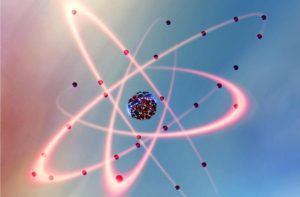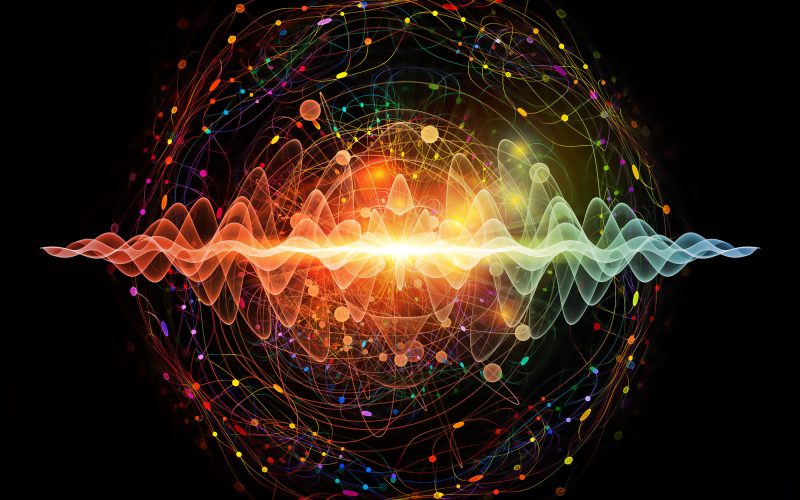Quantum Mechanics is a fascinating and enigmatic field of physics that governs the behavior of matter and energy on the smallest scales imaginable. It provides a framework for understanding the fundamental nature of particles and the forces that govern their interactions. In this article, we will delve into the intricacies of Quantum Mechanics, exploring its historical origins, key principles, practical applications, and future implications.
Introduction to Quantum Mechanics
Quantum Mechanics, often referred to as quantum physics or quantum theory, emerged in the early 20th century as a revolutionary framework to explain phenomena that classical physics could not adequately describe. It describes the behavior of particles at the atomic and subatomic levels, where traditional Newtonian mechanics break down.
Historical Background
Early Concepts and Pioneers
The foundations of Quantum Mechanics were laid by pioneering scientists such as Max Planck, who introduced the concept of quantization of energy, and Albert Einstein, whose work on the photoelectric effect provided evidence for the particle-like properties of light.
Development of Quantum Theory
The development of Quantum Mechanics accelerated with the contributions of Niels Bohr, Werner Heisenberg, Erwin Schrödinger, and others. Their work led to the formulation of mathematical frameworks, such as wave mechanics and matrix mechanics, which provided a comprehensive understanding of quantum phenomena.
Key Principles of Quantum Mechanics
Wave-Particle Duality
One of the most profound principles of Quantum Mechanics is the wave-particle duality, which suggests that particles exhibit both wave-like and particle-like behavior depending on the context of observation.
Uncertainty Principle
Proposed by Werner Heisenberg, the Uncertainty Principle states that it is impossible to precisely measure both the position and momentum of a particle simultaneously. This inherent uncertainty is a fundamental aspect of quantum systems.
Quantum Entanglement
Quantum entanglement is a phenomenon where the properties of particles become correlated in such a way that the state of one particle instantly influences the state of another, regardless of the distance between them. This concept has led to groundbreaking developments in quantum information science.
Applications of Quantum Mechanics

Quantum Computing
Quantum computers leverage the principles of Quantum Mechanics to perform calculations at speeds exponentially faster than classical computers. They hold the potential to revolutionize fields such as cryptography, optimization, and drug discovery.
Quantum Cryptography
Quantum cryptography utilizes the principles of quantum mechanics to secure communication channels against eavesdropping. It relies on the principles of quantum entanglement and the uncertainty principle to ensure the integrity and confidentiality of transmitted data.
Quantum Teleportation
While not teleportation in the traditional sense, quantum teleportation involves the transfer of quantum information from one location to another using quantum entanglement. This phenomenon has implications for secure communication and quantum networking.
Quantum Mechanics in Everyday Life
Semiconductor Technology
Quantum Mechanics underpins the functioning of semiconductor devices such as transistors, diodes, and integrated circuits, which form the backbone of modern electronics.
MRI Machines
Magnetic Resonance Imaging (MRI) machines utilize the principles of Quantum Mechanics to generate detailed images of the internal structures of the human body. They rely on the behavior of atomic nuclei in a magnetic field to create high-resolution images.
Lasers
Lasers operate based on the principles of Quantum Mechanics, particularly the behavior of photons. They are used in a wide range of applications, including telecommunications, medicine, manufacturing, and entertainment.
Challenges and Controversies in Quantum Mechanics
Interpretational Issues
Despite its success, Quantum Mechanics is rife with interpretational challenges, including the nature of wave function collapse, the role of consciousness in measurement, and the existence of multiple parallel universes.
Quantum Gravity
One of the major unresolved problems in physics is the unification of Quantum Mechanics with General Relativity to form a consistent theory of quantum gravity. This endeavor remains a central focus of theoretical physics.
Measurement Problem
The measurement problem in Quantum Mechanics arises from the apparent collapse of the wave function upon measurement. Understanding the nature of this collapse and its implications for reality is a topic of ongoing debate among physicists.
Future Prospects and Innovations
Quantum Biology
The emerging field of Quantum Biology explores the role of quantum phenomena in biological systems, including photosynthesis, bird navigation, and olfaction. Understanding these quantum effects could lead to breakthroughs in medicine and biotechnology.
Quantum Internet
A quantum internet could enable secure communication networks immune to eavesdropping and interception. Researchers are working on developing quantum communication protocols and quantum repeaters to realize this vision.
Quantum Sensing
Quantum sensors leverage the sensitivity of quantum systems to detect minute changes in physical quantities such as magnetic fields, gravitational waves, and biological signals. They have applications in navigation, geology, healthcare, and beyond.
Conclusion
Quantum Mechanics stands as one of the most profound and impactful theories in the history of science. From revolutionizing our understanding of the microscopic world to enabling groundbreaking technologies, its influence permeates every aspect of modern life. As we continue to unravel the mysteries of the quantum realm, the possibilities for innovation and discovery are limitless.
FAQs
What is Quantum Mechanic ?
Quantum Mechanics is the branch of physics that describes the behavior of matter and energy on the smallest scales, governed by principles such as wave-particle duality and the uncertainty principle.
How does Quantum Mechanic impact technology?
Quantum Mechanics underpins technologies such as quantum computing, cryptography, and sensing, which have the potential to revolutionize fields ranging from cybersecurity to healthcare.
What are the practical applications of Quantum Mechanic ?
Practical applications of Quantum Mechanics include semiconductor technology, MRI machines, lasers, and quantum communication technologies like quantum cryptography and teleportation.
What are the challenges in understanding Quantum Mechanic ?
Challenges in understanding Quantum Mechanics include interpretational issues, unification with General Relativity, and the measurement problem, which continue to provoke debate and exploration among physicists.
What is the future of Quantum Mechanic ?
The future of Quantum Mechanics holds promise for innovations such as quantum biology, quantum internet, and quantum sensing, which could revolutionize fields ranging from medicine









